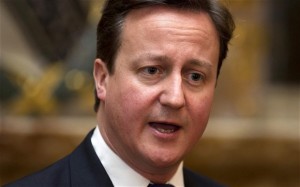Man in Clarksville Guilty of Tax Fraud
 A man in Clarksville had pleaded guilty in a federal court for the crime of filing a false tax income on January 14, 2013.
A man in Clarksville had pleaded guilty in a federal court for the crime of filing a false tax income on January 14, 2013.
The man’s name was James Robert Sanford, 53, and in addition to filing a false tax income he was also guilty for aiding and abetting a false claim for a federal income tax refund. Jerry E. Martin, an Attorney for Tennessee, officially announced the news.
Sanford had brushes with the law a couple of years before this incident. On November 30, 2011, Sanford had been indicted by a federal grand jury in Nashville, and was charged with 6 counts of filing false income tax returns. Based on the indictment filed, Sanford had prepared and filed 2006 and 2007 federal income tax returns for him and his wife, knowing full well that the returns were fraudulent. The 2006 tax return claimed refunds of $5,774 and the 2007 tax return claimed refunds of $4,276.
Not only has Sanford filed false income tax returns for himself, but he did it for others as well, making a profit through his schemes. The returns that he claimed for these refunds for others were from $3,490 to $7,128.
Sanford will be sentenced on April 8, and he is likely to face a maximum penalty of 5 years imprisonment, in addition to a $250,000 fine for each false income tax return he made. He has come clean for all the false income tax returns he has claimed, and will be sentenced by Chief Judge William J. Haynes, Jr.
Categories: Federal Tax, Income Tax, Tax Evasion, Tax Law Tags: federal income tax, federal tax, federal tax fraud, income tax, tax crime, tax evasion, tax fraud
France throws out tax hike on the rich
 France- The high court for France struck down a supertax on its nations most elite individuals. This serves as a major blow to President Francois Hollande’s plan to repair France’s economy. This came days before it was proposed to pass the high court.
France- The high court for France struck down a supertax on its nations most elite individuals. This serves as a major blow to President Francois Hollande’s plan to repair France’s economy. This came days before it was proposed to pass the high court.
The high court saw that taxing individuals income over 1.32 million at a 75% tax rate was unconstitutional and highly unfair.
Almost immediately the socialist President vowed to modify and resubmit the proposal which had been passed by the Parliament earlier in the month.
Prime Minister Jean-Marc Ayrault said in a statement that a new proposal to tax the rich “taking into account the principles raised by the Constitutional Council’s decision” would be drawn up as part of the next budget law submitted in 2013 or 2014. No further details of how and when this would be done were given.
The controversial measure was a pillar of Hollande’s success presidential campaign. The measure was proposed on a temporary basis and would effect less that 2000 people in the entire population of France and raise just shy of under a billion dollars during it being in effect. This will hardly solve the financial crisis that burdens this country.
This was just one of several measure s proposed by Hollande to bring down the countries spending deficit to 3% of its gross domestic product. The proposed timeframe for this to occur was within five years or his full term in office.
The measure which was widely support by the leftist wing of the political party drew nothing but criticism from conservatives and business owners that were concerned that such high tax rates would drive wealthy entrepreneurs to flee the country.
These concerns held footing when two of France’s most elite jumped shipped to move to Belgium supposedly to avoid the 75% tax rate. One of those two individuals is world renowned billionare Bernard Arnault, owner of luxury goods company Luis Vuitton.
A number of French nationales already have jumped ship to move to Switzerland, Belgium, and Britain which boast predominately lower tax burdens on the wealthy.
The ruling released by the Council on Saturday struck down the measure because it “failed to recognize equality” The proposed rule change would impact individuals only on income over 1.3 million dollars whereas everyone else in the country would skirt those high tax rates. This tax proposal would indirectly effect a small portion of the population in an unfair manner.
Upon hearing about this unfair ruling Finance Minister Pierre Moscovici recently confirmed that the federal government of France will not drop its pursuit to tax the wealthy to solve its debt crisis.
“Our deficit-cutting path will not be diverted,” Moscovici told BFM television.
Categories: Federal Tax, Income Tax, Tax Law Tags: corporate tax, federal income tax, federal tax, federal tax fraud, french tax, tax law, tax reform, tax the rich
Payroll taxes are set to rise
 Capitol Hill- Looks like whether or not we plunge off the fiscal cliff won’t matter for some tax hikes. It looks as if come hell or high water payroll taxes are set to rise once again.
Capitol Hill- Looks like whether or not we plunge off the fiscal cliff won’t matter for some tax hikes. It looks as if come hell or high water payroll taxes are set to rise once again.
The payroll tax cut, which has been in effect for the past two years will expire this forthcoming Monday. No talks are underway to even begin thinking about modifying this or changing the fate of this expiring tax cut. On a similar note the fiscal cliff is set to begin next week as well. Unfortunately it looks like no negotiations will be had to resolve this issue and 500 billion in combined tax increases and spending cuts will take into effect next week.
This expiration will result in every single worker seeing their paychecks shrink by over 1,000 dollars next year for individuals making 50,000 a year. The rate will go from 4.2% to 6.2% and benefit Social Security.
These tax increases will take this money out of the economy and have a certain impact on growth of the US economy next year. This will take out of the economy 113 billion dollars or roughly .7% of the annual US output. This will have some impact on the US economy next year seeing as how we have seen sluggish growth for the past few quarters of around 2%.
“They certainly weren’t too keen about publicizing that a lot of money was about to disappear,” said Nigel Gault, chief U.S. economist at IHS. “It will be a surprise to a lot of people that they’ll have less to spend and they’ll have to adjust.”
It seems as if families are already taking into consideration these cuts as individual families this year spent on average 100$ dollars less than in previous years. This is quite strange behavior seeing as how we are supposedly out of the recession.
These families will be in for a surprise that will take into effect almost immediately. Most middle class families have a hard time paying the bills and live paycheck to paycheck. It is yet to be discovered as to how these tax increases are set to effect these folks.
According to a recent survey 2 in 5 houses live paycheck to paycheck. This is much higher than in recent years according to the Consumer Federation of America and the Certified Financial Planner Board of Standards.
These pay cuts are also expected to drop the savings rate of individuals because of the decrease of money into the economy.
Originally this payroll tax cut was put into effect in order to stimulate the economy in 2010. In recent times 2001 and 2008 the government actually sent checks to individuals in order to stint a recession.
Only time will tell whether or not this needed tax break will fade otu of existence with minimal effects to the economy or if the US government will slip back into a recession because of the cut of this sorely needed tax break.
Categories: Federal Tax, Income Tax, Tax Law Tags: federal income tax, federal tax, federal tax fraud, fiscal cliff, income tax, payroll tax cut

